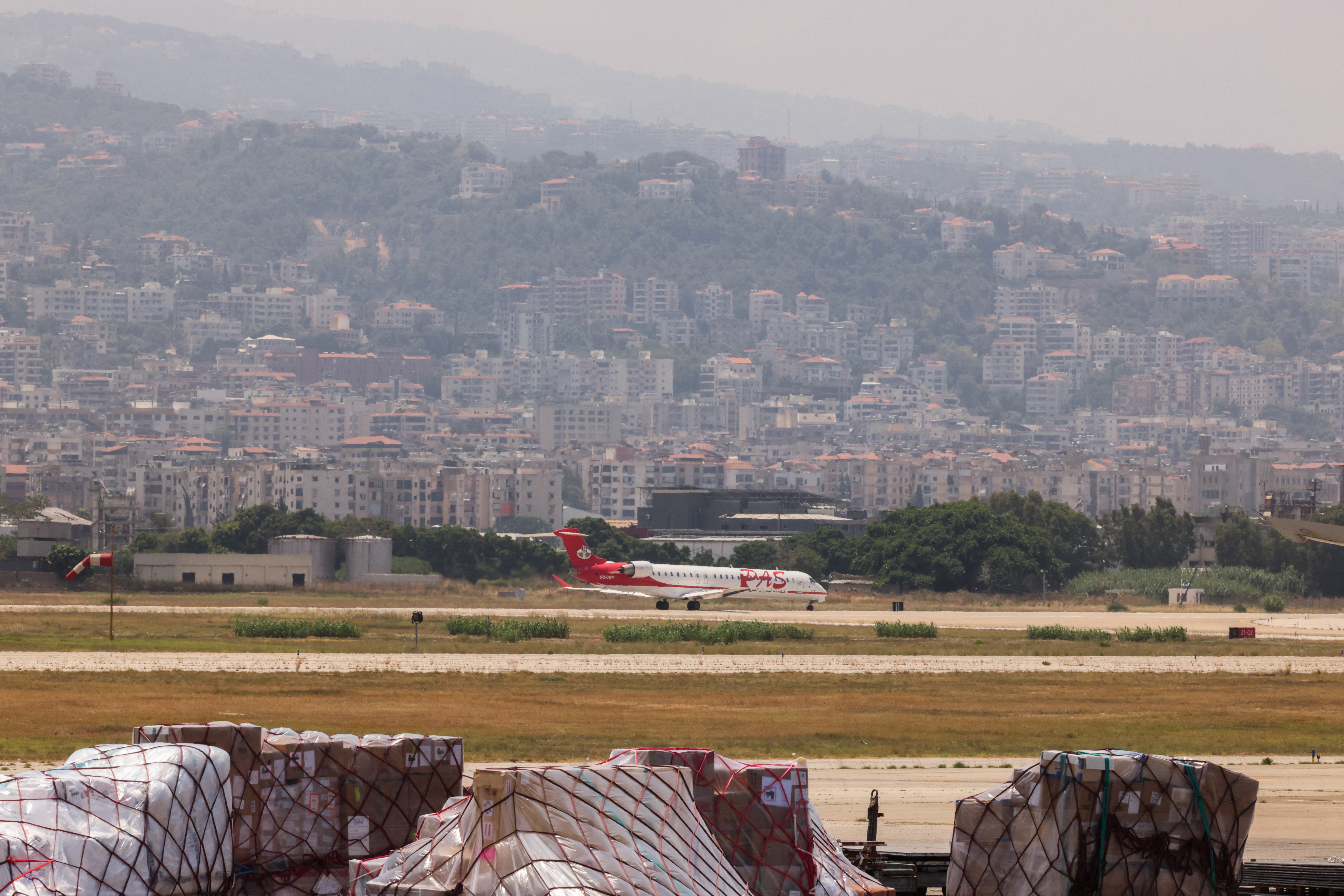
A photo taken during a tour organized by the Lebanese Ministry of Public Works and Transport shows a plane taking off from the cargo runway at Beirut’s international airport on June 24, 2024. Agence France-Presse
WASHINGTON — US Secretary of State Antony Blinken called on Israel during a Monday meeting with its defense minister to avoid further escalation in Lebanon as they discussed efforts to reach a deal to free hostages in Gaza.
Defense Minister Yoav Gallant was on a visit to Washington seeking to reaffirm the value of ties with Israel’s top ally, after Prime Minister Benjamin Netanyahu publicly chastised the United States for what he said was a delay in weapons deliveries.
In a two-hour meeting with Gallant at the State Department, Blinken discussed indirect diplomacy between Israel and Hamas on an agreement that “secures the release of all hostages and alleviates the suffering of the Palestinian people,” State Department spokesman Matthew Miller said.
READ: Israel-Hezbollah tensions drive fears of widening Gaza war
Blinken also “underscored the importance of avoiding further escalation of the conflict and reaching a diplomatic resolution that allows both Israeli and Lebanese families to return to their homes,” Miller said in a statement.
Tensions have been rising with growing exchanges of fire between Israel and Lebanon’s Iranian-backed militant movement Hezbollah.
Netanyahu has said Israeli forces are winding up the most intense part of the Gaza war and will redeploy to the northern border, although he cast the move as defensive.
READ: Lebanese minister denies Hezbollah weapons at Beirut airport
Gallant also met CIA chief Bill Burns, the key US pointman in negotiations to free hostages from Hamas.
“I would like to emphasize that it is Israel’s primary commitment to return the hostages, with no exception, to their families and homes,” Gallant said before starting his meetings.
“We will continue to make every possible effort to bring them home,” he said.
The minister made no further comment as he left the meeting with Blinken, as a few dozen protesters outside the State Department chanted to call him a “war criminal.”
Arms shipment dispute
President Joe Biden on May 31 laid out a plan for a ceasefire in Gaza and release of hostages.
Hamas, which launched the conflict with its October 7 attack on Israel, has come back with its own demands, and the United States hopes the gaps can be bridged.
Netanyahu, who has faced major protests calling for him to accept the deal, in recent days has annoyed the Biden administration by accusing Washington of cutting back arms and ammunition deliveries.
Gallant took a different tack, saying: “The alliance between Israel and the United States, led by the US over many years, is extremely important.”
Other than Israel’s own military, “our ties with the US are the most important element for our future from a security perspective,” he said.
Biden, who has faced criticism from parts of his own base over his support for Israel, held back a shipment that included heavy 2,000-pound bombs.
Netanyahu — who has close relations with Biden’s rivals in the Republican Party — told a cabinet meeting on Sunday that there was a “dramatic drop in the supply” of US weapons around four months ago.
Asked about his latest remark, Miller told reporters, “I don’t understand what that comment meant at all.”
“We have paused one shipment of high-payload munitions. That shipment remains on pause,” Miller told reporters.
“There are other weapons that we continue to provide Israel, as we have done going back years and years, because we are committed to Israel’s security. There has been no change in that,” Miller said.
Miller said the United States would also press Israel to work on longer-term arrangements after the end of the fighting.
“We don’t want to see in Rafah what we’ve seen in Gaza City and what we’ve seen in Khan Yunis, which is the end of major combat operations and then the beginning of Hamas reasserting control,” he said, referring to two other major cities targeted by Israel earlier in the war.